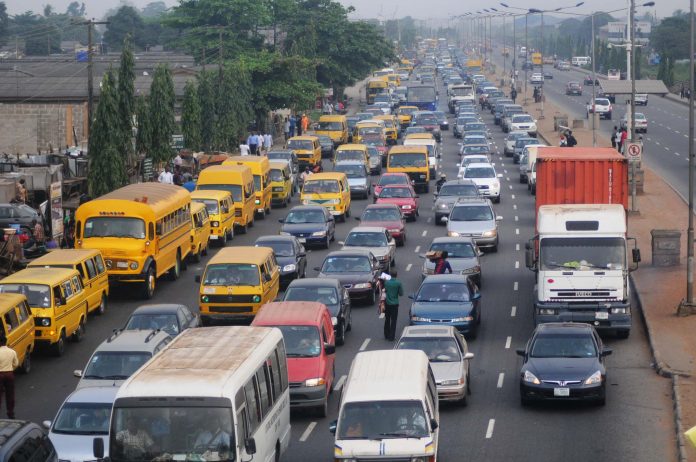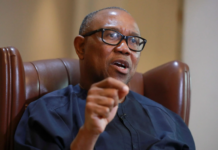By Ishaya Ibrahim
Missing one’s flight is a common experience among Lagos residents.
Charles Ezugwu got a bit of that on Friday, April 13, when he missed his 5 pm Lagos – Abuja bound flight due to gridlock en route to the Murtala Mohammed Airport.
Not that he was careless. He left his home at Iju-Ishaga, two-and-half-hours before departure, a distance of 11 kilometres to the Airport which ought to take him 48 minutes by the estimated time of arrival (ETA) of the Uber he rode in.
He, however, got to the Airport at 6 pm, one hour late, forcing him to reschedule his travel. An unexpected rain on his way to the airport that day made the roads impassable. The traffic situation became a horror.
Even after booking a ride on any of the Ride Hailing Apps like Uber, Taxify, Oga Taxi, Jekalo and Carxie, the time you are expected to reach your destination has nothing to do with the vehicle you are riding in, but the roads.
The roads are full of potholes, with some as deep as a three-feet gutter. One pothole can leave behind, a two-kilometre stretch of traffic snarl which may now snake into nooks and crannies of the main road, feeder roads and streets, a typical bumper-to-bumper movement.
The snarl in Lagos traffic has also resulted in poor business turnovers for individuals, companies and the state in the way of taxes.
At an event on April 4, 2016, in Abuja, the Lagos State Governor, Akinwumi Ambode said the state losses N42 billion yearly due to gridlock.
But three years after he made the comment, the traffic situation has deteriorated because more roads have caved in, more potholes have sprouted and more vehicles and motorcycles are struggling for the same space.
But Ambode acknowledged at the event, which was the sixth annual lecture of the Federal Road Safety Corps (FRSC) that Lagos being the nerve-centre of Nigeria’s socio-economic and industrial activities, requires an effective and efficient traffic system.
But an effective transport system is reliant on motorable roads, not potholes roads which thieves take advantage of to rob motorists of their valuables. Many have also missed business meetings, deals, appointments, interviews and flights because of these bad roads.
The failure to fix the Lagos traffic situation has now motivated the return of motorcycles, popularly called Okada which the administration of former governor Babatunde Fashola banned on certain routes. “They are now back with impunity, and the government seems incapable of doing anything,” Peter Samuelson, a Lagos commercial bus driver said.
And since the Lagos traffic law permits 200cc motorbikes on the roads, Gokada, an App that allows a resident to book a ride on a motorcycle, has procured many of those motorbikes.
Unlike cars that can be held down for hours as a result of traffic, the Gokada can manoeuvre the roads and beat the annoying traffic jam, but with the same risk which motorcycles are exposed to.















